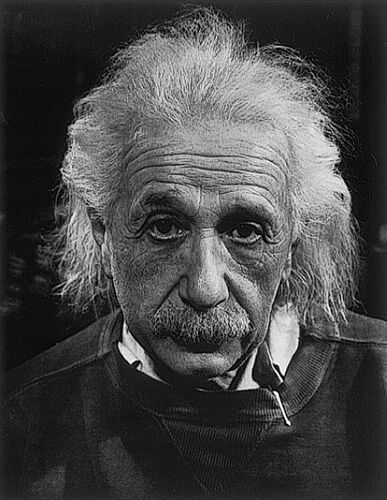09 Aug “SPOOKY ACTION AT A DISTANCE” ISN’T SPOOKY
 “Spooky action at a distance”, as Einstein called it, refers to the experimental fact that particles can affect each other instantly, even when separated by large distances. For example, if two photons are created together in what is called an entangled state and the angular momentum of one is changed, then the angular momentum of the other one will change in a corresponding manner at the same time, no matter how far apart the particles are. This “spooky” behavior has been known for almost a hundred years and still is a source of befuddlement.
“Spooky action at a distance”, as Einstein called it, refers to the experimental fact that particles can affect each other instantly, even when separated by large distances. For example, if two photons are created together in what is called an entangled state and the angular momentum of one is changed, then the angular momentum of the other one will change in a corresponding manner at the same time, no matter how far apart the particles are. This “spooky” behavior has been known for almost a hundred years and still is a source of befuddlement.
Yet there is a theory in which the result is not spooky, but rather a natural consequence. I’m referring to Quantum Field Theory, which describes a world made only of fields, with no particles. What we call a particle is really a chunk, or quantum, of a field. Quanta are not localized like particles, but are spread out through space. For example, photons are chunks of the electromagnetic field and protons are chunks of the matter field. These quanta evolve in a deterministic way as per the fundamental field equations and there is a term in these equations that limits the speed of propagation to the velocity of light.
However the QFT equations don’t tell the whole story. There are events that are not described by the field equations – for example, when a field quantum transfers energy or momentum to another object. This event is non-local in the sense that the change in, or even disappearance of, the quantum happens instantly, no matter how spread-out the field may be. It can even happen with two entangled quanta – no matter how much they are separated. In QFT, this is necessary if each quanta is to act as a unit, as per the fundamental basis of QFT.
There is a big difference between quantum collapse in QFT and wave-function collapse in QM. The former is a real physical change in the fields while the latter is a change in our knowledge. Although we don’t have a theory to describe quantum collapse, there is nothing inconsistent about it. To quote from Fields of Color: The theory that escaped Einstein:
In QFT the photon is a spread-out field, and the particle-like behavior occurs because each photon, or quantum of field, is absorbed as a unit… It is a spread-out field quantum, but when it is absorbed by an atom, the entire field vanishes, no matter how spread-out it is, and all its energy is deposited into the atom. There is a big “whoosh” and the quantum is gone, like an elephant disappearing from a magician’s stage.
Quantum collapse is not an easy concept to accept – perhaps more difficult than the concept of a field. Here I have been working hard, trying to convince you that fields are a real property of space – indeed, the only reality – and now I am asking you to believe that a quantum of field, spread out as it may be, suddenly disappears into a tiny absorbing atom. Yet it is a process that can be visualized without inconsistency. In fact, if a quantum is an entity that lives and dies as a unit, which is the very definition of quantized fields, then quantum collapse must occur. A quantum cannot split and put half its energy in one place and half in another; that would violate the basic quantum principle. While QFT does not provide an explanation for when or why collapse occurs, some day we may have a theory that does. In any case, quantum collapse is necessary and has been demonstrated experimentally.
Some physicists, including Einstein, have been bothered by the non-locality of quantum collapse, claiming that it violates a fundamental postulate of Relativity: that nothing can be transmitted faster than the speed of light. Now Einstein’s postulate (which we must remember was only a guess) is indeed valid in relation to the evolution and propagation of fields as described by the field equations. However quantum collapse is not described by the field equations, so there is no reason to expect or to insist that it falls in the domain of Einstein’s postulate.

Sorry, the comment form is closed at this time.